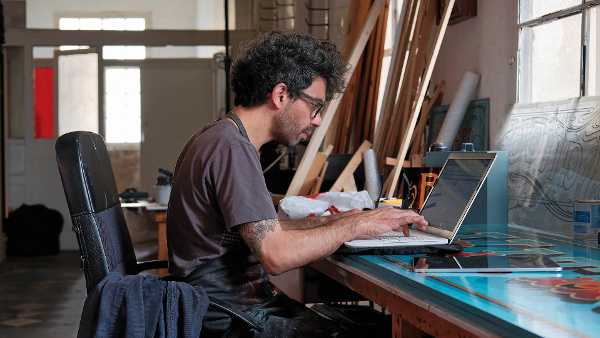Are you worried about false self-employment? These are your options

- Alicia Heeger
- The choice
- 13 January 2025
- Edited 21 January 2025
- 3 min
- Ending and deregistration
- Rules and laws
Are you a self-employed professional and think you may be falsely self-employed? Or do your clients not renew your contracts because they think they are at risk of punishment? If so, you may wonder whether you can remain as a self-employed professional. Read in this article what you can do if you are concerned you may be accused of false self-employment.
Since 1 January 2025, the Netherlands Tax Administration is fully enforcing the rules for false self-employment. You and your client run the risk of an extra tax assessment. What can you do if it turns out you are falsely self-employed?
What is false self-employment?
Jacob van der Vis is an adviser at KVK. Lately, he has spoken to many freelancers about false self-employment. They are often worried about their situation. Van der Vis explains what false self-employment is: “Are you self-employed? Then your relationship with your client must have the defining characteristics of self-employment. For example, you set your own hours, you do not work fixed hours, and you perform different work than employees of the same company. It may also be that you do not fully meet the defining characteristics of a self-employed professional. Then you run the risk of being falsely self-employed. This means that your client should not hire you as a freelancer, but as an employee.”
Find out if you are falsely self-employed
Use Rijksoverheid’s self-employment (in Dutch) to find out whether your situation truly fits self-employment or if it is closer to salaried employment. If necessary, you can copy and paste the questions and answers into an online translation tool to help you. How you work with your client every day is the decisive factor. Not what your contract says. Make sure the reality is also reflected in your contract, though, so that it matches up. Van der Vis: “Together with your client, you are responsible for choosing the right form of employment. So, agree on this together. Because the consequences of an incorrect choice will affect both of you.”
Options in case of false self-employment
Does it turn out that you are falsely self-employed? Then decide for yourself how to deal with this. There are several options.
You want to continue as a self-employed professional
You would like to stay self-employed. Talk to your client about having more freedom and responsibility. Determining your own hours and hourly rate, for example. Work with multiple clients and decide where and when you do what work. In short, make sure you have as many characteristics of a self-employed person as possible and adjust your contracts accordingly. Then you must also work according to the characteristics of a self-employed person in practice. Keep in mind that not all jobs and employers can meet these characteristics.
Please note: Are you currently working with a model agreement approved by the Tax Administration? This is valid for a maximum of 5 years, until no later than 2029.
You want to stop being self-employed
Perhaps things are not working out with your clients. Or you feel uncertain about how to work with them in the future. Maybe you received a good offer from a client to go into paid employment. Or there are other reasons why you want to stop being self-employed. Van der Vis: “Some self-employed people choose to stop. But there are also industries in which self-employed professionals have no choice and clients decide not to work with freelancers anymore.”
Use the Ending your business checklist to find out what to arrange if you stop being self-employed. “Pay close attention to the order of things you need to arrange. Deregistering from KVK is only the last step in the process,” warns Van der Vis. “Unfortunately, we see this go wrong too often. People who are self-employed deregister too quickly and do not know that the deregistration cannot be reversed. This can have negative consequences. If you are deregistered, sometimes you can no longer access your business bank account, for example. Or you can no longer apply for benefits because you are no longer an entrepreneur.”
You want to be employed
Would you rather be employed? Then talk to your client and explore the possibility of becoming an employee. Perhaps your working relationship already has many characteristics of salaried employment, even though you have been hired as self-employed. If so, let your client know which characteristics are involved and what the risk is. The client runs the risk of receiving an extra payroll tax assessment and, in the future, being fined. Making them aware of this can help in negotiations.
If your client will not hire you but you still want to be employed, then look for other job opportunities.
You want to be both employed and a part-time freelancer
If you become an employee, you can also keep doing other jobs alongside your salaried job. Then you become a part-time entrepreneur. If you opt for this, you can continue to be registered with KVK. Just make sure you avoid false self-employment.
KVK Advice Team
Do you have questions about false self-employment? Then contact a KVK expert: +31 (0)88 585 22 22.

